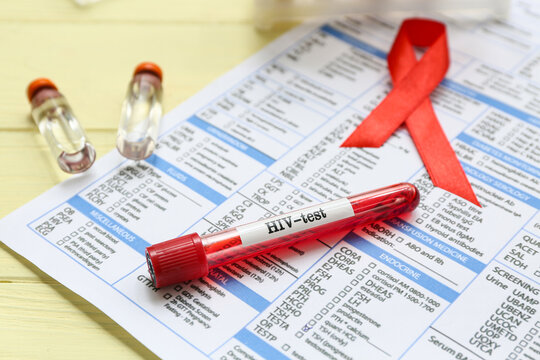Take Charge of Your Health with Essential HIV Treatment Steps
Living with HIV presents significant challenges, but it also empowers individuals to take control of their health. With the right approach, support, and medical care, people living with HIV can lead long, healthy lives. HIV is no longer a death sentence; it's a manageable condition that requires proactive steps. Here's how you can take charge of your health and make the right preparations for a fulfilling life with HIV.
Living with HIV presents significant challenges, but it also empowers individuals to take control of their health. With the right approach, support, and medical care, people living with HIV can lead long, healthy lives. HIV is no longer a death sentence; it's a manageable condition that requires proactive steps. Here's how you can take charge of your health and make the right preparations for a fulfilling life with HIV.

1. Get Tested and Know Your HIV Status
The first step in managing HIV is knowing your status. Regular HIV testing is crucial for early detection, which is key to effective treatment. Everyone between the ages of 13 and 64 should have at least one HIV test as part of routine health checks. Those with higher-risk behaviors (such as unprotected sex or sharing needles) should test more frequently. Early detection means timely intervention, allowing individuals to start treatment and significantly improve their health outcomes.
2. Start Antiretroviral Therapy (ART) as Soon as Possible
Once diagnosed, the most critical step is starting antiretroviral therapy (ART) immediately. ART involves a combination of medications that prevent the virus from multiplying in the body. These medications improve immune function and reduce the viral load, meaning lower levels of HIV in the blood. Starting ART early not only helps improve quality of life but also reduces the risk of transmitting HIV to others.
There are several ART options available, and your healthcare provider will help tailor a plan that suits your individual needs. Consistent ART use has transformed HIV from a life-threatening condition into a manageable chronic illness.
3. Make Healthy Lifestyle Choices
Alongside ART, adopting a healthy lifestyle is essential for individuals living with HIV. Here are some key changes to consider:
- Nutrition: A well-balanced diet helps maintain a strong immune system, which is essential when living with HIV. Eating nutrient-dense foods can boost energy, support immune function, and help manage any side effects from medications.
- Exercise: Regular physical activity improves physical and mental health. It can reduce stress, boost energy levels, and improve cardiovascular health, which is particularly important for people with HIV, as they are at higher risk for heart disease.
- Avoid Smoking and Excessive Alcohol: Smoking and heavy alcohol consumption can weaken the immune system, making it harder to fight infections. Reducing or eliminating these habits can improve your health and overall well-being.
4. Take Care of Your Mental Health
Mental health is a vital part of living well with HIV. The emotional impact of an HIV diagnosis can be overwhelming, often leading to anxiety, depression, or feelings of isolation. Seeking support from mental health professionals, support groups, or loved ones is essential for emotional well-being. Therapy, counseling, and connecting with others who understand your experience can provide vital coping strategies.
Your mental health is just as important as your physical health in managing HIV effectively.
5. Prevent HIV Transmission to Others
If you're living with HIV, it's important to take steps to prevent transmitting the virus to others. This can include:
- Using condomsduring sex to protect your partners from HIV.
- Not sharing needles or syringes, as this is a direct route for HIV transmission.
- Informing sexual partnersabout your HIV status. This allows for informed decisions about protection and health care.
Being proactive about HIV transmission not only helps protect others but also fosters open communication and trust in relationships.
6. Build a Strong Support System
Having a support network is crucial when managing HIV. Family, friends, and support groups can provide emotional support, reduce stigma, and help you stay motivated to follow your treatment plan. Educating your loved ones about HIV can also help create an understanding and supportive environment that is essential for your well-being.
Support groups, either in-person or online, can connect you with others living with HIV, offering a sense of community and shared experience.
7. Regular Check-ups and Vaccinations
Routine medical check-ups are essential to track the progress of your treatment and monitor any side effects. Your healthcare provider will regularly check your viral load and immune system function, adjusting your treatment as needed.
Additionally, it’s important to stay up to date on vaccinations for flu, pneumonia, and other infections. People living with HIV are more vulnerable to infections, so keeping your immune system in top shape through vaccinations can help prevent illness.
Conclusion: Take Charge of Your Health
Living with HIV requires taking proactive steps to maintain your health. By starting ART early, adopting a healthy lifestyle, seeking mental health support, and educating yourself about HIV transmission, you can manage your condition effectively. With the right approach, HIV can be a manageable chronic condition, and you can lead a fulfilling life.
Remember, living with HIV does not mean living with limitations. With the right care, education, and support, you can take charge of your health and live a long, healthy, and productive life.